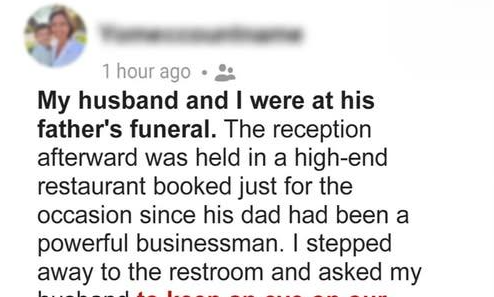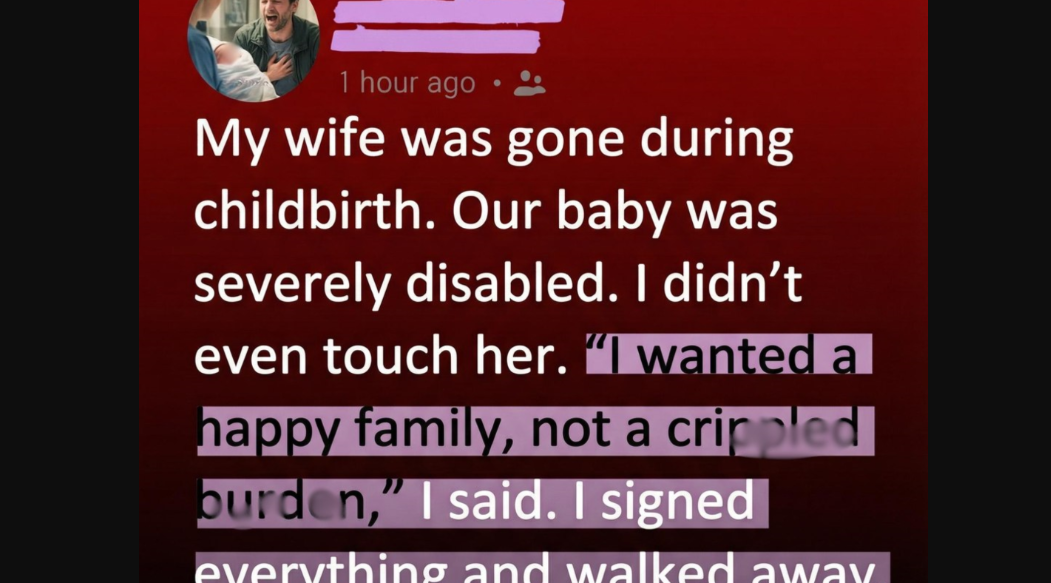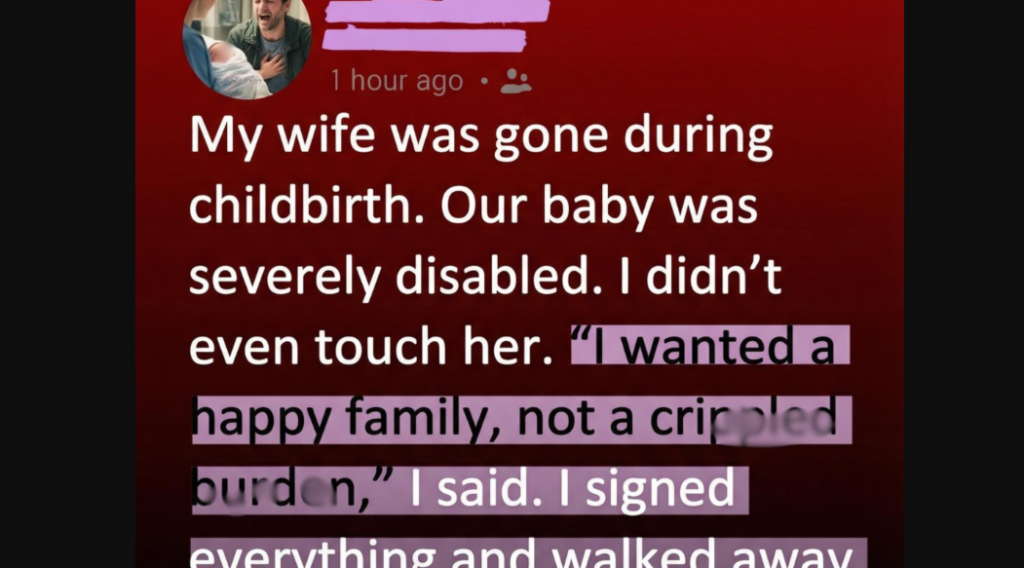Children possess a remarkable ability to perceive the world with an unclouded vision that grown-ups frequently misplace along the way. Their straightforward honesty pierces through quiet moments like a bright ray of sunlight breaking through clouds. I experienced the profound accuracy of this observation on the very day we gathered for my father-in-law’s funeral—a day saturated with sorrow, hushed conversations, and a deep melancholy that made every step feel unusually heavy.
While the grown-ups in the reception hall exchanged quiet condolences over cups of cooling coffee, my four-year-old son Ben slipped beneath the long tables, completely unaffected by the complex emotions floating above him. When he emerged a few moments later, something in his expression had shifted. He reached up, tugged gently at the hem of my black dress, and leaned close to my ear. In the softest, most matter-of-fact voice, he delivered words that stopped my heart: “Mommy… I saw Daddy touch another lady’s leg.”
In that first stunned second, my mind raced to explain it away—perhaps a trick of the light, a child’s imagination turning an innocent gesture into something else. Yet Ben lifted his small arm and pointed with absolute certainty across the room toward Rachel, the woman who had been Arthur’s family friend for as long as I could remember. In an instant, fragments I had pushed aside for months began to connect: the sudden “urgent” late nights at the office, the phone that always rested screen-down during dinner, the way Arthur and Rachel seemed to gravitate toward the same corner of every room when they believed no one noticed.
I refused to confront him in the middle of his father’s funeral, but the weight of that whisper followed me home. Later that evening, when the house finally grew quiet, I asked Arthur—calmly, carefully—how long he and Rachel had been “close.” The flash of defensiveness in his eyes, the sharp edge in his voice as he demanded to know why I would even ask such a thing, spoke volumes louder than any confession ever could.
By sunrise the following day, I had opened an old shared work email account Arthur had long forgotten about. Everything waited there in black and white: months of intimate messages, booked hotel rooms in nearby cities, photographs taken in moments he swore he was alone, and a carefully constructed web of falsehoods laid over the marriage we had nurtured for almost ten years. I printed every page, scheduled an appointment with a trusted lawyer before the city fully woke up, and began planning my departure in silence while Arthur continued playing the role of the grieving son who needed space and understanding.
One month later, when the divorce papers were handed to him by a process server, his face registered pure shock rather than sorrow. Men who build their lives on deception rarely expect the truth to arrive so neatly packaged. In court, the evidence left little room for argument. The judge awarded me full custody of Ben, and in a development Arthur never anticipated, a significant portion of his late father’s company was transferred directly to our son as his rightful inheritance.
Life on the other side of that chapter unfolded with a calm I had almost forgotten was possible. Our home no longer carried the low hum of unspoken tension; doors stayed open, conversations flowed freely, and the air felt lighter. Mornings now belong to Ben and me—simple routines filled with laughter, breakfast at the table instead of in hurried silence, and the sweet luxury of knowing exactly where we stand.
Some days, Ben climbs into my lap, wraps his small arms around my neck, and asks in his gentle way, “Mom, are you happy now?” I pull him close, breathe in the scent of his shampoo, and answer with a smile that comes from somewhere deep and real. Yes, sweetheart. I am happy—truly, deeply happy.
That single sentence whispered beneath a funeral table did not destroy our family; it rescued us. A child’s clear-eyed truth, offered without malice or calculation, became the key that unlocked a future I had stopped daring to imagine. Sometimes the smallest voice carries the greatest power, and sometimes that power does not break—it heals, it rebuilds, and it guides you gently toward the life you were always meant to live.







